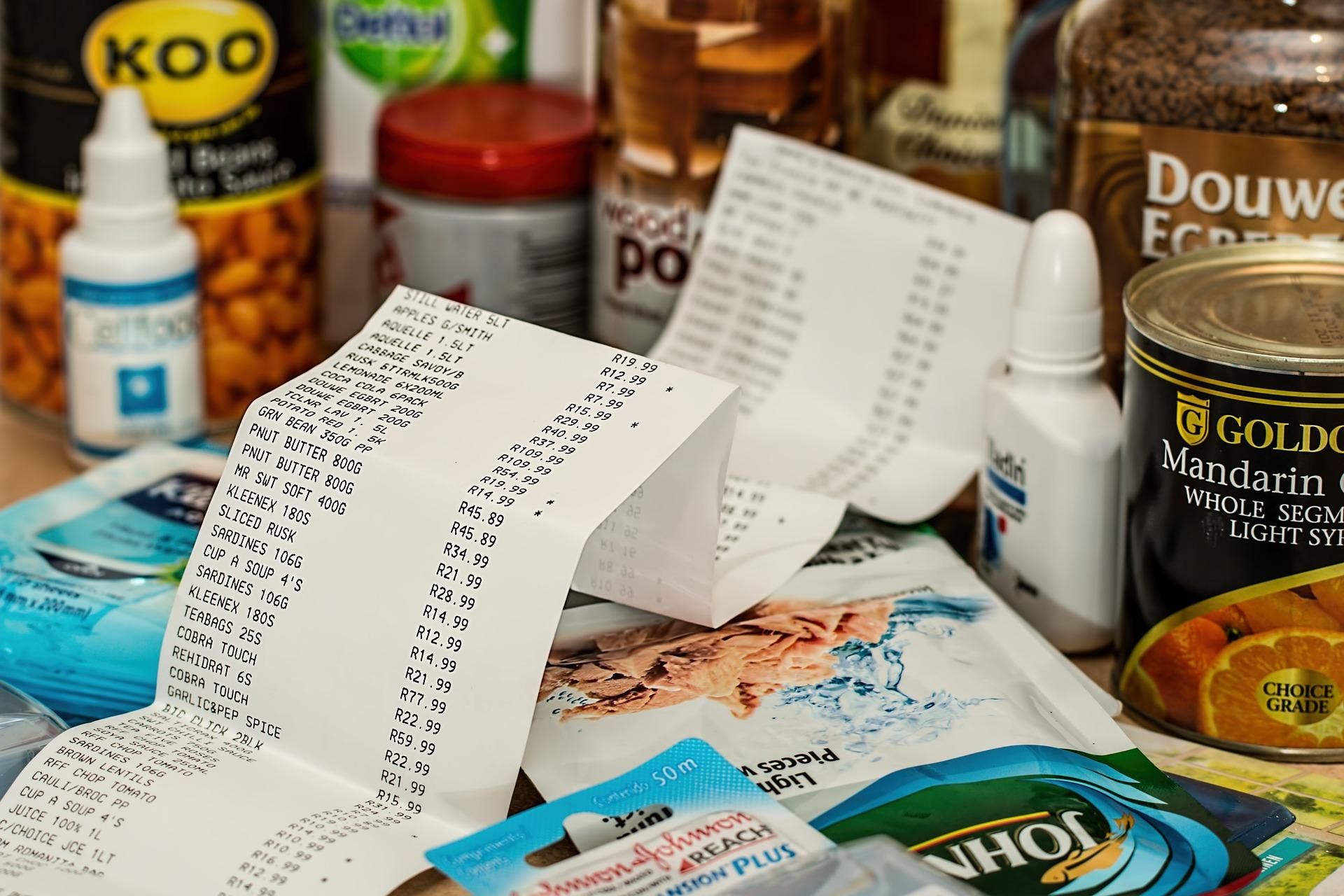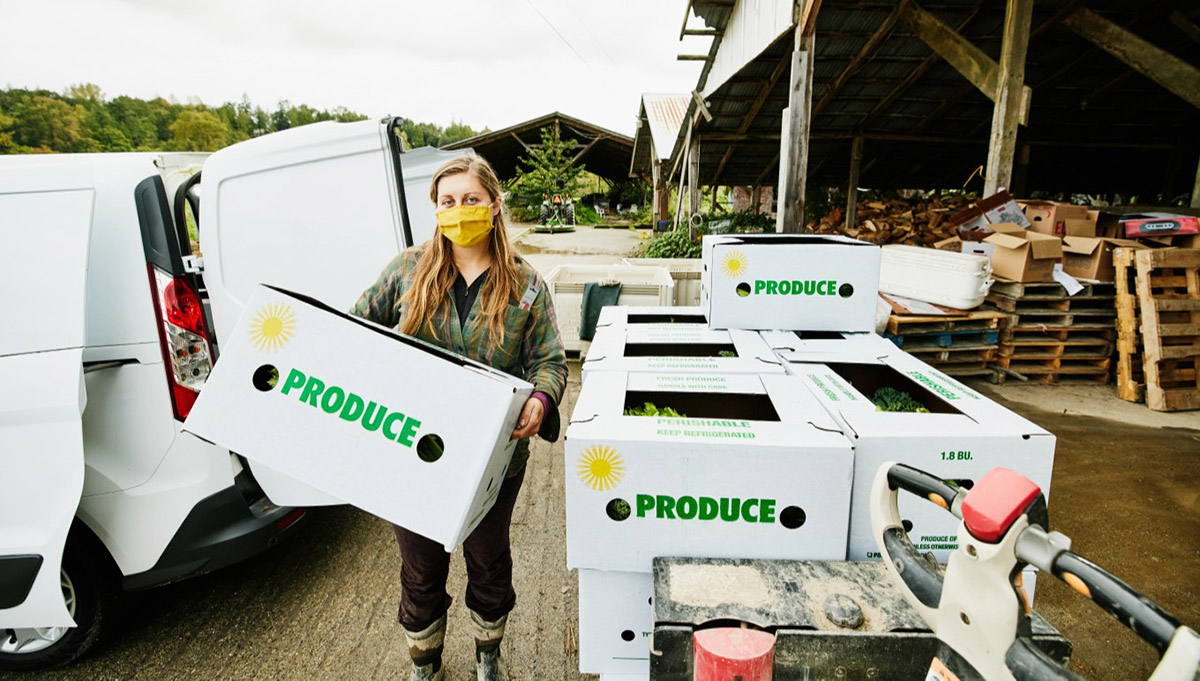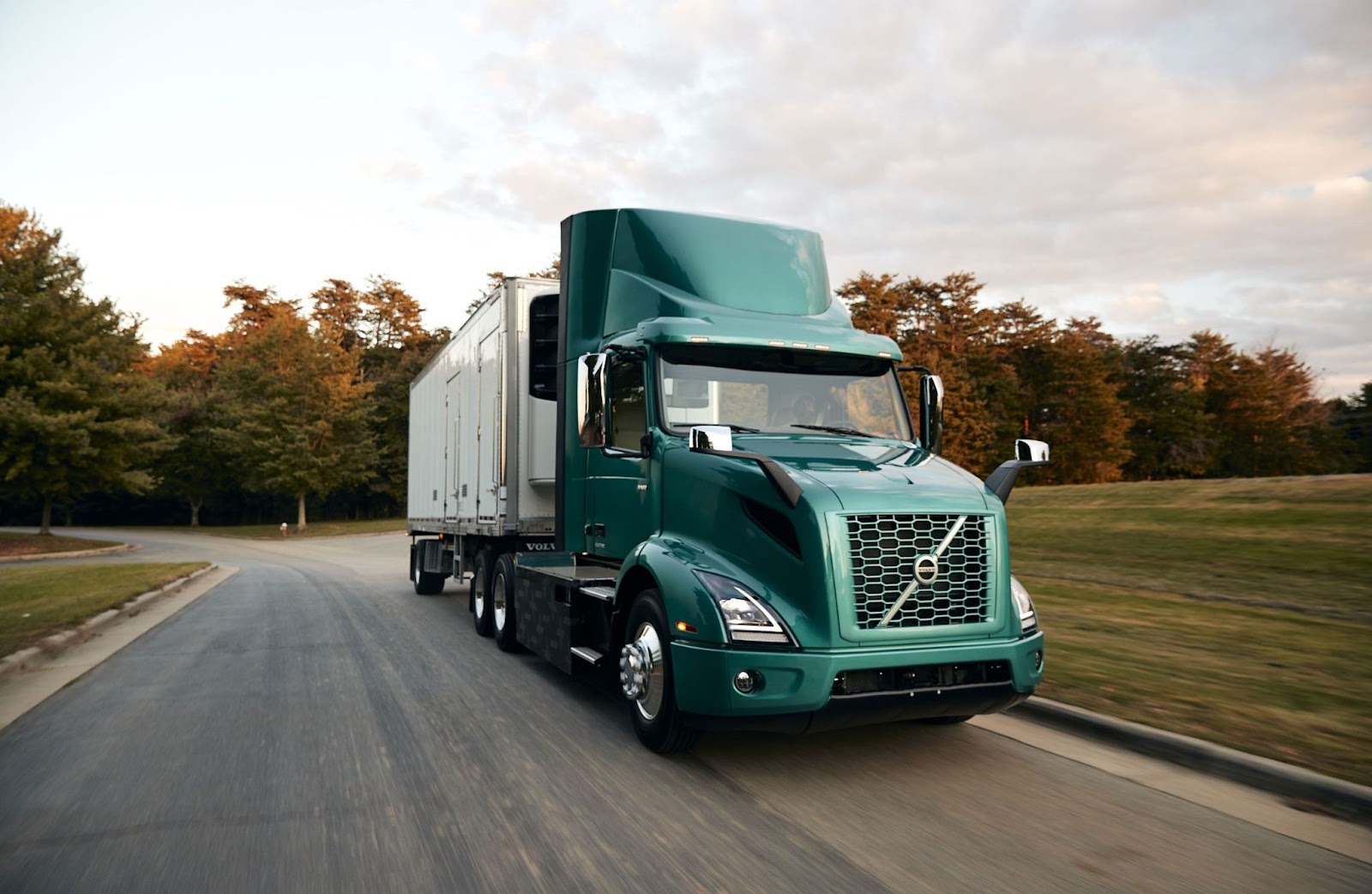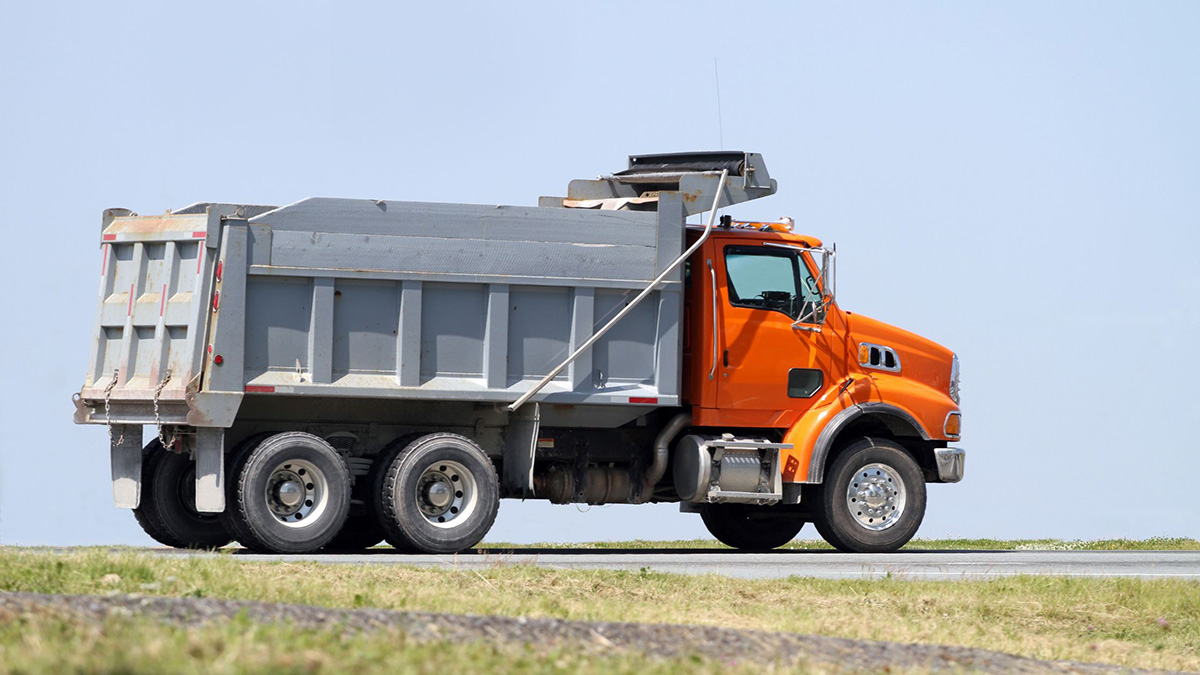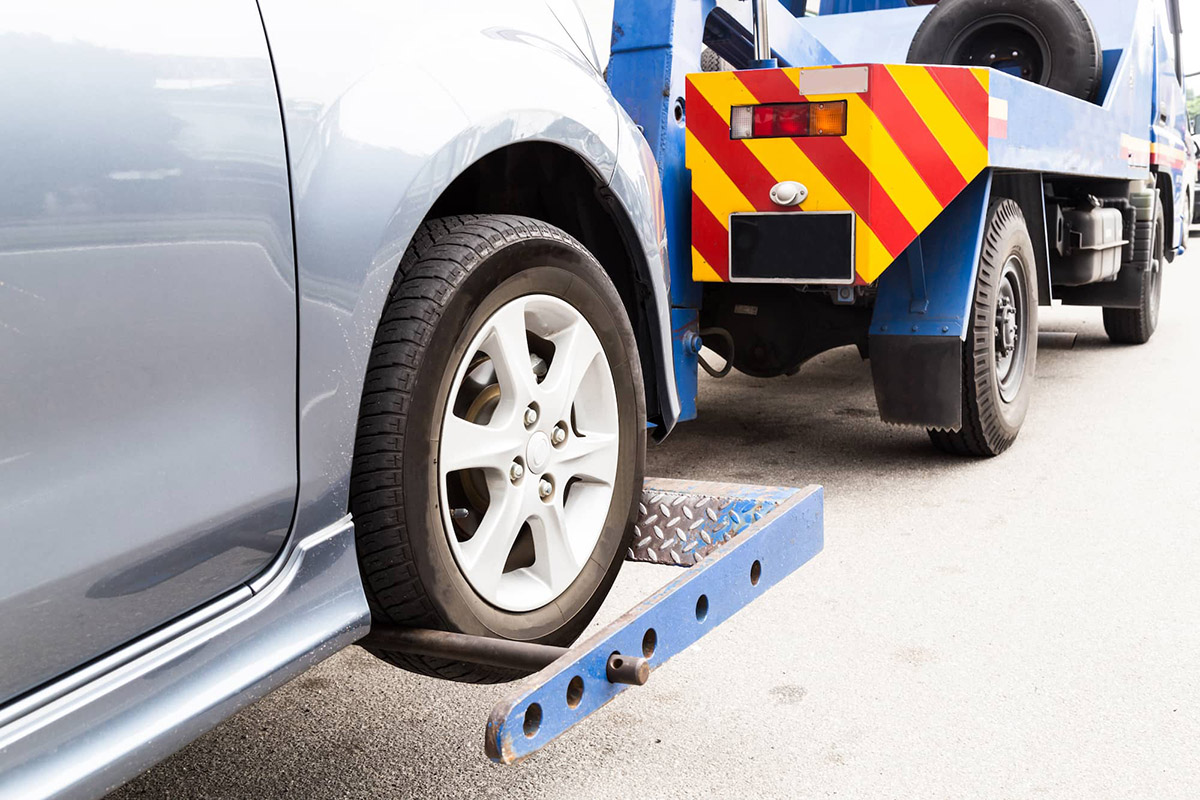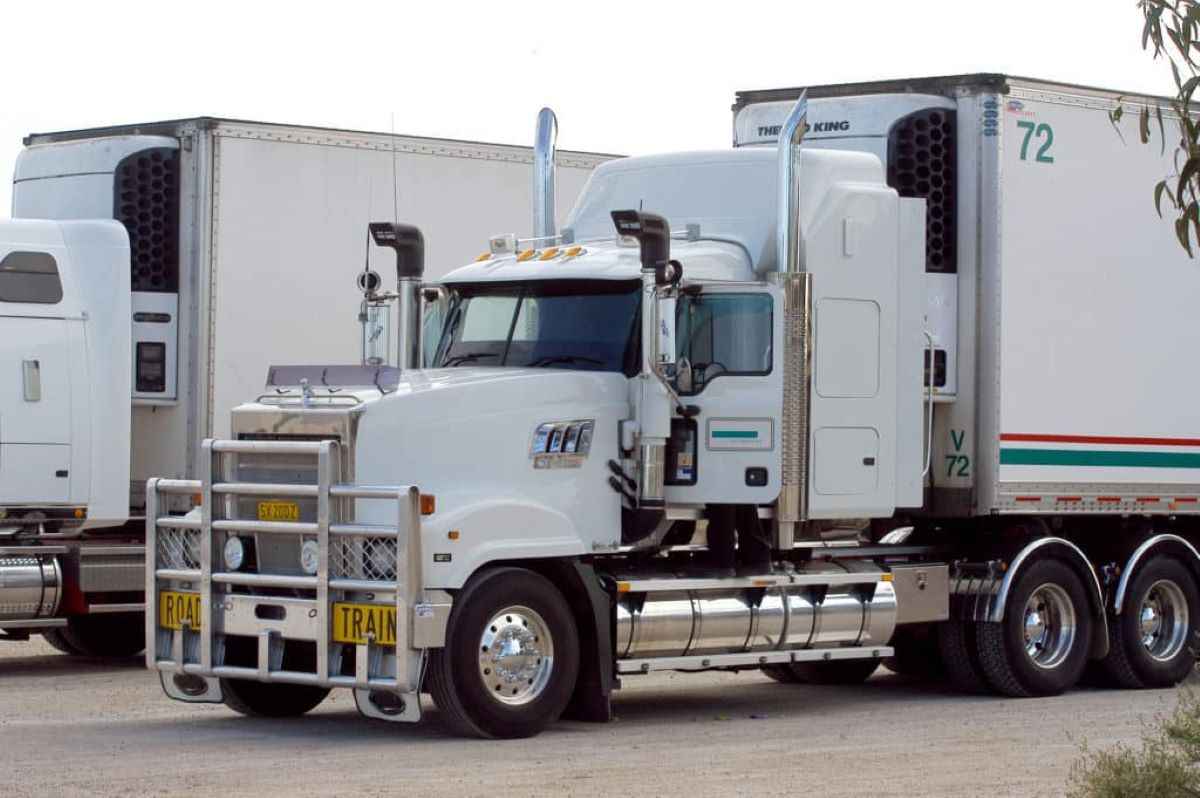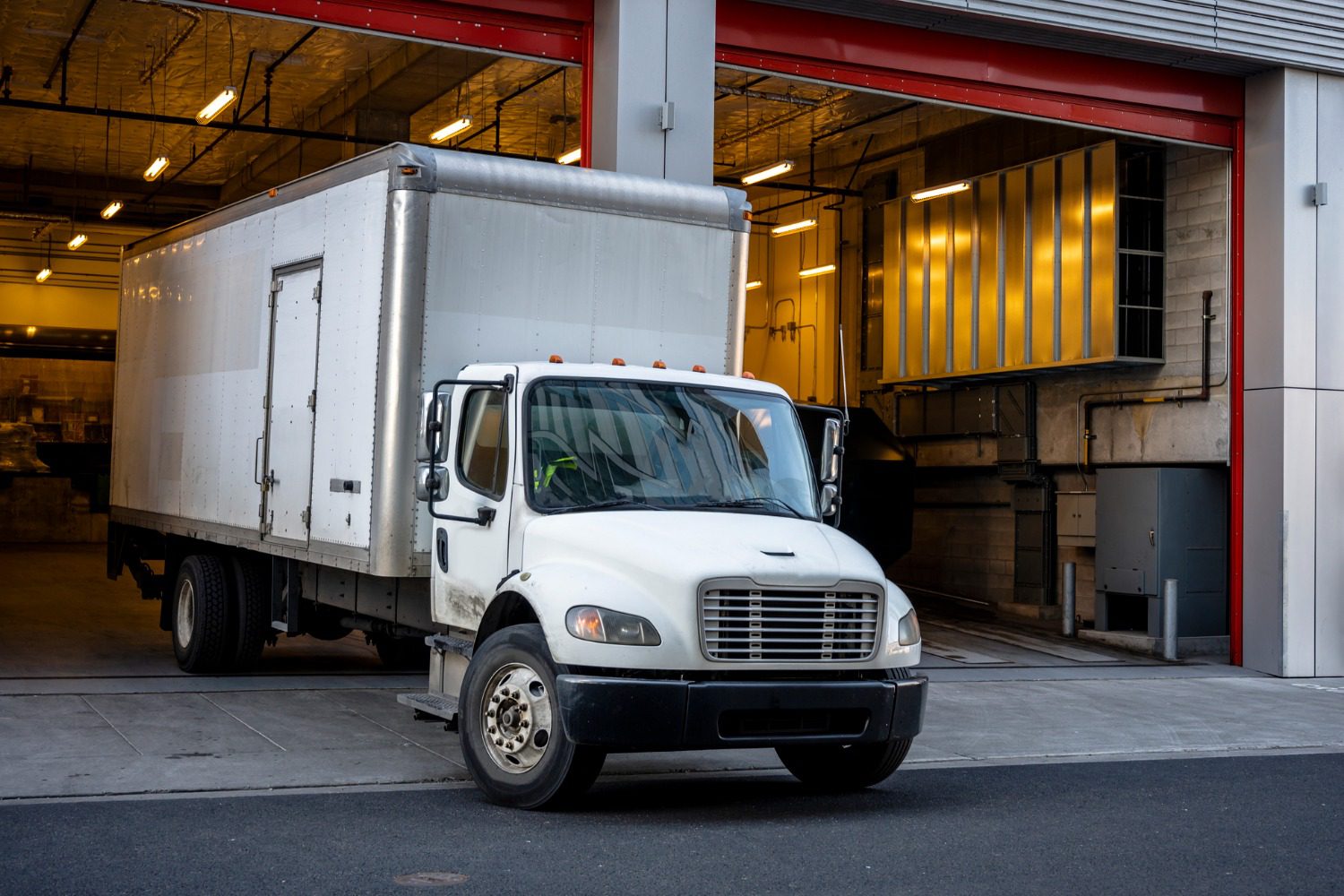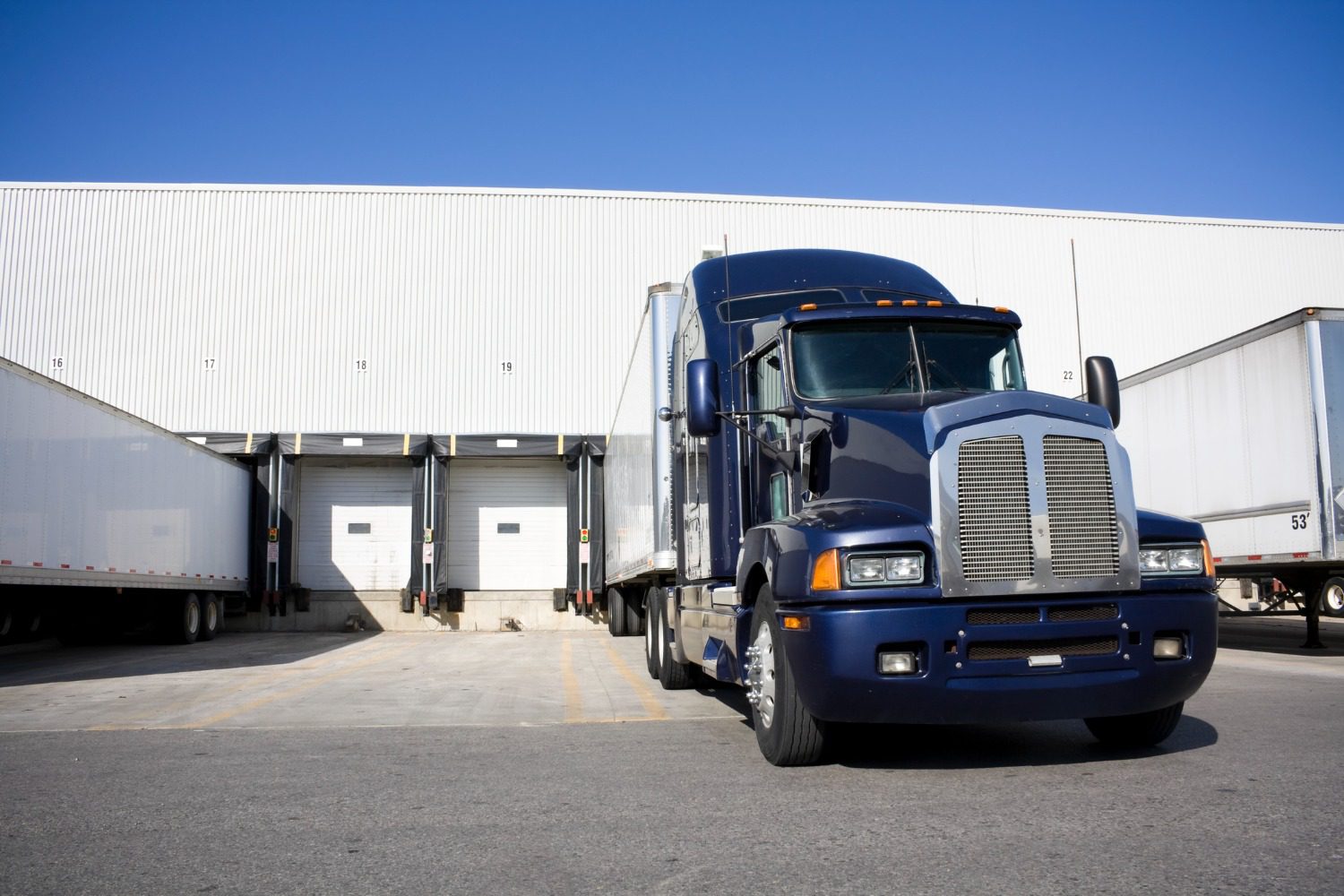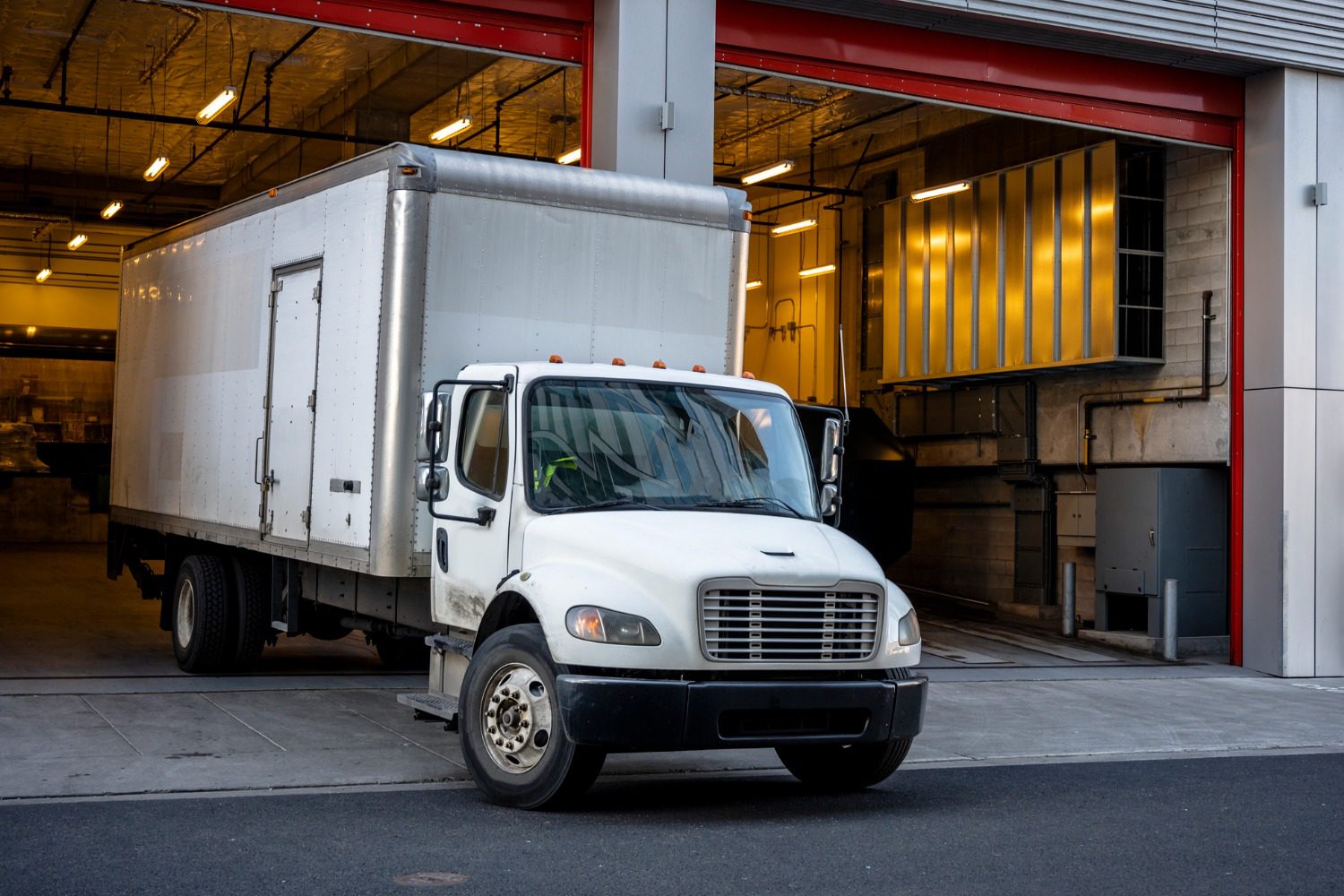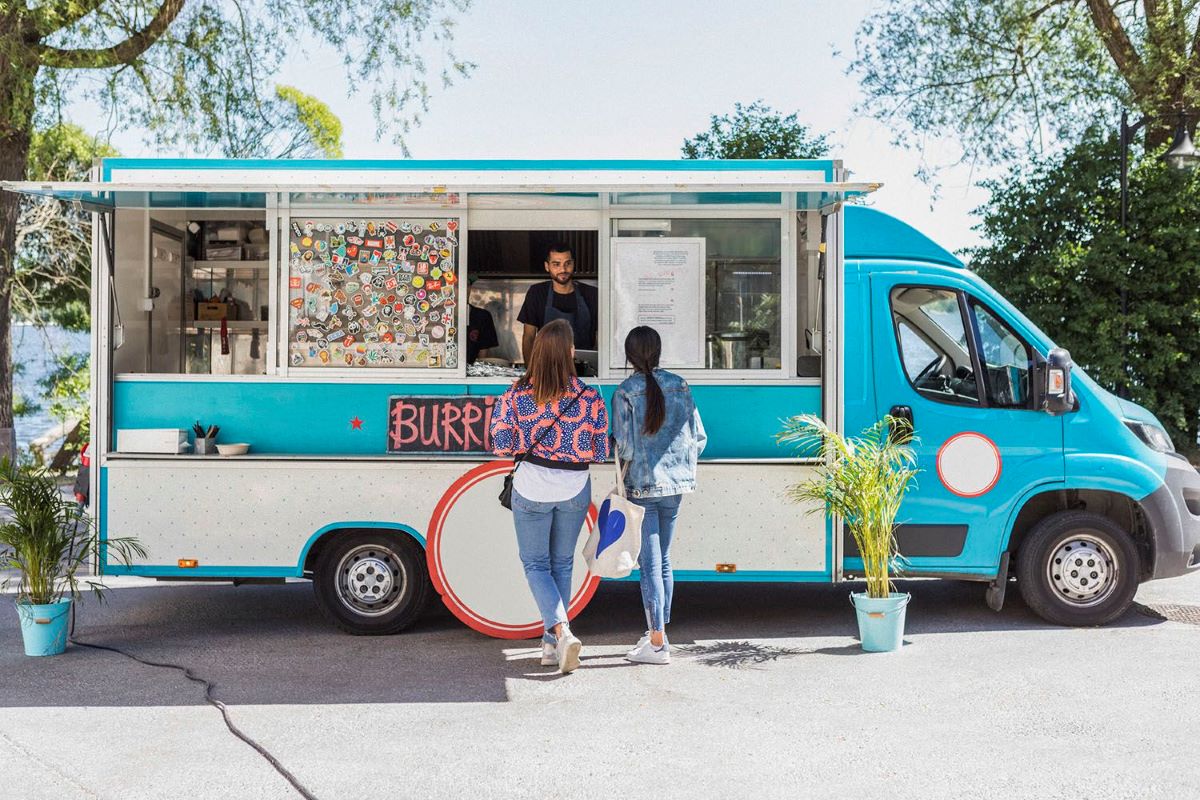

Finance
How Much Is Insurance On A Food Truck?
Published: November 15, 2023
Find out the cost of insuring your food truck and explore finance options to protect your mobile business.
(Many of the links in this article redirect to a specific reviewed product. Your purchase of these products through affiliate links helps to generate commission for LiveWell, at no extra cost. Learn more)
Table of Contents
Introduction
Operating a food truck can be an exciting and lucrative venture. With the freedom to travel and the opportunity to share your culinary creations with customers on the go, it’s no wonder that this industry has gained so much popularity in recent years. However, just like any business, food trucks come with risks and uncertainties that need to be handled carefully. One of the most important aspects of running a successful food truck business is having adequate insurance coverage.
Food truck insurance is a specialized type of business insurance designed to protect food truck owners from a variety of risks. From accidents and injuries to damage to your vehicle or equipment, having the right insurance coverage can save you from financial troubles down the line. But how much does insurance on a food truck really cost?
Well, the cost of food truck insurance can vary depending on several factors, including the type of insurance coverage you choose, the value of your truck and equipment, your location, and your individual risk profile. In this article, we will explore the factors that affect food truck insurance rates, the different types of insurance coverage available, and what you can do to save money on food truck insurance.
Whether you’re just starting out or you’ve been in the food truck industry for years, understanding the importance of insurance and knowing how to choose the right coverage can make all the difference in protecting your business and your financial future.
Factors Affecting Food Truck Insurance Rates
When it comes to determining the cost of insurance for your food truck, several factors come into play. Understanding these factors can help you better navigate the insurance market and find a policy that fits your needs and budget. Here are some key factors that can affect your food truck insurance rates:
- Location: The location where you operate your food truck plays a significant role in determining your insurance rates. Areas with higher crime rates or a history of accidents may result in higher premiums.
- Driving Record: Your personal and commercial driving records will be taken into consideration. A clean driving record with no accidents or traffic violations will often result in lower insurance rates.
- Type of Cuisine: The type of cuisine you serve from your food truck can also impact your insurance rates. Some cuisines may be considered riskier than others due to factors such as cooking methods or ingredient sensitivity.
- Vehicle Value: The value of your food truck and equipment will also affect your insurance rates. A newer or more expensive vehicle will generally require higher coverage and result in higher premiums.
- Years in Business: Insurance companies may also consider the number of years you’ve been operating your food truck. Newer businesses may face higher rates due to a lack of proven track record or experience.
- Coverage Limits: The amount of coverage and the type of coverage you choose will impact your insurance rates. Higher coverage limits will generally lead to higher premiums.
- Claims History: Your claims history, both personal and commercial, will be taken into account. If you’ve had previous claims, especially ones related to your food truck business, it may result in higher insurance rates.
It’s important to keep in mind that these factors can vary between insurance providers, so make sure to shop around and compare quotes to find the best coverage at the most competitive rates for your food truck business.
Types of Insurance Coverage for Food Trucks
When it comes to insurance coverage for your food truck, it’s crucial to have the right policies in place to protect your business from various risks. Here are some of the essential types of insurance coverage for food trucks:
- Liability Insurance: This coverage is essential for food truck owners, as it protects you from claims arising from bodily injury or property damage caused by your operations. It covers legal expenses, medical bills, and settlements or judgments that may result from accidents or injuries caused by your food truck.
- Property Insurance: Property insurance for your food truck covers the loss or damage to your vehicle, equipment, and inventory. It safeguards against risks such as theft, vandalism, fire, or natural disasters.
- Commercial Auto Insurance: Commercial auto insurance is specifically designed for vehicles used for business purposes. It provides coverage for collisions, property damage, and bodily injury resulting from accidents involving your food truck.
- Workers Compensation Insurance: If you have employees working on your food truck, workers’ compensation insurance is crucial. It provides coverage for medical expenses and lost wages in case of work-related injuries or illnesses.
These are just a few of the key insurance policies that food truck owners should consider. Depending on the specifics of your business, you may also need additional coverage such as product liability insurance, business interruption insurance, or inland marine insurance for mobile equipment.
It’s essential to work with an insurance provider or agent experienced in the food truck industry to ensure that you have the appropriate coverage to protect your business against the unique risks and challenges you may face.
Liability Insurance
Liability insurance is one of the most crucial types of coverage for food truck owners. It protects you from potential lawsuits and financial liabilities resulting from accidents or injuries that occur on your food truck or as a result of your operations. Here’s what you need to know about liability insurance for your food truck:
Why It’s Important:
As a food truck owner, you interact directly with customers and serve food to the public. Despite your best efforts to maintain a safe environment, accidents can happen. Whether it’s a slip and fall incident or a customer suffering from food poisoning, liability insurance helps protect your business by covering the costs associated with legal defense, medical expenses, settlements, and judgments.
What It Covers:
Liability insurance typically covers two main areas:
- Bodily Injury: This coverage applies if a customer or third party is injured on or near your food truck. It can cover medical expenses, rehabilitation costs, and lost wages if the injured party files a claim against you.
- Property Damage: If you or your employees cause damage to someone else’s property while operating your food truck, liability insurance can help cover the costs of repairs or replacement.
Factors to Consider:
When choosing liability insurance for your food truck, it’s important to consider a few factors:
- Policy Limits: The amount of coverage you choose for your liability insurance will impact your premiums. Make sure to assess your potential risks and select a coverage limit that adequately protects your business.
- Deductibles: Consider the deductibles associated with your liability insurance policy. A higher deductible can help lower your premiums but may require you to pay more out of pocket in the event of a claim.
- Additional Coverage: Depending on your specific needs, you may want to consider additional coverage options such as product liability insurance or general liability insurance to provide further protection for your business.
Having liability insurance for your food truck is not only a smart business decision but also a legal requirement in most jurisdictions. It gives you peace of mind knowing that you’re financially protected if an unfortunate incident occurs on your food truck.
Property Insurance
Property insurance is a crucial type of coverage for food truck owners as it provides protection for the physical assets of your business. From your food truck itself to the equipment and inventory inside, property insurance safeguards your investments against risks. Here’s what you need to know about property insurance for your food truck:
Why It’s Important:
Operating a food truck involves significant investments in your vehicle, kitchen equipment, and inventory. Without proper protection, unexpected events such as theft, fire, or natural disasters could result in substantial financial losses. Property insurance ensures that you can recover and resume your business operations if your assets are damaged or destroyed.
What It Covers:
Property insurance typically provides coverage for the following:
- Food Truck: This includes coverage for your food truck itself, whether it’s a separate vehicle or a modification of an existing vehicle. It protects against damage or destruction caused by accidents, fires, or other covered events.
- Equipment: Property insurance covers the kitchen equipment and appliances inside your food truck. This includes items like ovens, grills, fryers, refrigerators, and cash registers.
- Inventory: It also provides coverage for the inventory or stock of food, beverages, and supplies that you carry in your food truck. This ensures that you can recover the value of lost or damaged items.
Factors to Consider:
When selecting property insurance for your food truck, there are a few factors to consider:
- Valuation: It’s important to accurately assess the value of your food truck, equipment, and inventory to ensure that you have adequate coverage. Consider factors such as the age and condition of your assets when determining the valuation.
- Coverage Limits: Review the coverage limits of the property insurance policy to ensure that they align with the value of your assets. Adjust your limits accordingly as your business grows and your asset values change.
- Deductibles: Take into account the deductibles associated with the property insurance policy. A higher deductible can help lower your premiums but may require you to contribute more out of pocket in the event of a claim.
By having property insurance in place, you can protect your food truck business from unexpected events that could disrupt or hinder your operations. It gives you peace of mind and financial security knowing that your investments are properly safeguarded.
Commercial Auto Insurance
Commercial auto insurance is a vital type of coverage for food truck owners. Since your food truck acts as both a vehicle and a business asset, it’s crucial to have insurance that addresses specific risks associated with its operation. Here’s what you need to know about commercial auto insurance for your food truck:
Why It’s Important:
As a food truck owner, you rely heavily on your vehicle to transport your business and deliver your products. Commercial auto insurance provides essential coverage in the event of accidents, damage, or theft involving your food truck. It protects you financially by covering repairs, medical expenses, and legal costs.
What It Covers:
Commercial auto insurance typically provides coverage for the following:
- Collision Coverage: This coverage pays for repairs or replacement of your food truck if it’s damaged in an accident, regardless of who is at fault.
- Liability Coverage: Liability coverage protects you if you are responsible for causing bodily injury or property damage to others while operating your food truck. It covers medical expenses, legal fees, and property repair costs.
- Comprehensive Coverage: Comprehensive coverage protects your food truck from non-collision incidents, such as theft, vandalism, fire, or natural disasters.
- Uninsured/Underinsured Motorist Coverage: This coverage provides protection in the event that you are involved in an accident with a driver who is not insured or does not carry sufficient insurance to cover the damages.
Factors to Consider:
When selecting commercial auto insurance for your food truck, consider the following factors:
- Usage: Your insurance premium may be influenced by how often and where you drive your food truck. Be prepared to provide information regarding annual mileage, territories of operation, and the primary purpose of the vehicle.
- Driver Records: Insurance companies may consider the driving history and records of all individuals who will be operating the food truck. Ensure that you and any employees have clean driving records to potentially lower insurance costs.
- Deductibles: Evaluate the deductibles associated with your commercial auto insurance policy. Higher deductibles can help reduce premiums, but make sure you can afford the out-of-pocket expenses if you need to file a claim.
Having commercial auto insurance for your food truck is not only a legal requirement but also an important protection for your business. It offers peace of mind knowing that you are financially covered in the event of an unfortunate mishap or accident.
Workers Compensation Insurance
Workers compensation insurance is a critical type of coverage for food truck owners who have employees working on their trucks. This insurance is designed to protect both the business owner and the employees in the event of work-related injuries or illnesses. Here’s what you need to know about workers compensation insurance for your food truck:
Why It’s Important:
As an employer, it is your responsibility to provide a safe working environment for your employees. However, accidents can happen, and employees may suffer injuries while working on your food truck. Workers compensation insurance ensures that injured employees receive medical treatment, rehabilitation services, and wage replacement while protecting businesses from potential lawsuits stemming from workplace injuries.
What It Covers:
Workers compensation insurance typically provides coverage for the following:
- Medical Expenses: This coverage pays for medical treatments, hospital stays, medications, and other related expenses incurred as a result of work-related injuries or illnesses.
- Lost Wages: Workers compensation insurance provides partial wage replacement for employees who are unable to work due to their injuries or illnesses. This helps them cover their living expenses during their recovery period.
- Disability Benefits: In cases where an employee suffers a permanent disability as a result of a work-related incident, workers compensation insurance may provide long-term disability benefits to compensate for their loss of earning capacity.
- Legal Protection: Workers compensation insurance also protects employers from potential lawsuits filed by employees for work-related injuries or illnesses. It can cover legal expenses and settlement costs if a claim is disputed.
Factors to Consider:
When obtaining workers compensation insurance for your food truck, consider the following factors:
- Number of Employees: The number of employees you have will impact the cost and coverage of your workers compensation insurance. Make sure to accurately report the number of individuals employed by your business.
- Employee Classification: Different job positions within your food truck may have different risk levels associated with them. Employees with higher-risk roles may result in higher insurance premiums.
- State Regulations: Workers compensation insurance requirements can vary by state. Familiarize yourself with the specific regulations in your state to ensure compliance.
By having workers compensation insurance, you not only protect your employees but also safeguard your food truck business from potential financial burdens and legal complications arising from work-related injuries or illnesses.
Cost of Insurance for Food Trucks
The cost of insurance for food trucks can vary significantly based on several factors. While there is no exact figure that applies to all food truck businesses, understanding the factors that influence insurance costs can help you estimate and budget for your insurance expenses. Here are some key considerations when it comes to the cost of insurance for food trucks:
Type and Amount of Coverage:
The insurance coverage you choose for your food truck will have a direct impact on your insurance costs. Comprehensive coverage that includes liability, property, and auto insurance will typically cost more than a basic liability-only policy. Similarly, higher coverage limits or additional coverage options will lead to higher premiums.
Value of Your Food Truck and Equipment:
The value of your food truck and the equipment you use can also affect your insurance costs. Newer trucks or expensive kitchen equipment may require higher coverage limits, resulting in higher premiums. Ensure that you accurately assess the value of your assets when obtaining insurance quotes.
Location:
The location where you operate your food truck can impact your insurance costs. Areas with higher crime rates or a history of accidents may result in higher premiums due to the increased risk of theft, vandalism, or accidents.
Driving Record:
Your personal and commercial driving records will be taken into consideration by insurance providers. A clean driving record with no accidents or traffic violations can result in lower insurance rates. On the other hand, a poor driving record may lead to higher premiums or difficulty obtaining coverage.
Years in Business:
The number of years you’ve been operating your food truck can influence your insurance costs. Newer businesses may face higher rates due to a lack of proven track record or experience. As you establish a history of safe operations, you may become eligible for lower premiums.
Claims History:
Your claims history, both personal and commercial, will be taken into account by insurance providers. If you’ve had previous claims, especially ones related to your food truck business, it may result in higher insurance rates. Demonstrating a history of safe practices and minimal claims can help lower your premiums over time.
It’s important to note that insurance costs can vary between insurance providers, so it’s advisable to shop around, compare quotes, and work with an experienced insurance agent who understands the specific needs and risks of the food truck industry.
How to Save Money on Food Truck Insurance
While food truck insurance is a necessary expense to protect your business, there are several strategies you can employ to save money on your insurance premiums. By being proactive and taking the necessary steps to mitigate risks and demonstrate responsible business practices, you can potentially lower your insurance costs. Here are some tips on how to save money on food truck insurance:
Shop Around: Obtain quotes from multiple insurance providers to compare coverage options and pricing. Each company may have different rates and discounts, so exploring your options can help you find the most competitive rates.
Invest in Safety Measures: Taking steps to make your food truck safer can potentially lead to lower insurance premiums. Install safety features such as fire suppression systems, security alarms, and cameras to reduce the risk of accidents, theft, and vandalism.
Implement a Safety Program: Develop and enforce safety protocols and training for your employees. This demonstrates your commitment to reducing accidents and risk, which can be viewed favorably by insurance companies.
Maintain a Clean Driving Record: Your driving record has a direct impact on your insurance rates. Encourage your employees to practice safe driving habits and obey traffic laws. By maintaining a clean driving record, you can potentially qualify for lower premiums.
Consider Higher Deductibles: Increasing your deductibles can help reduce your insurance premiums. However, ensure that you can afford to pay the higher out-of-pocket expenses if you need to file a claim.
Bundle Your Policies: If you have other insurance policies, such as business or personal insurance, consider bundling them with your food truck insurance. Many insurance providers offer discounts for bundling multiple policies.
Have a Good Claims History: Avoid making unnecessary or frequent claims. Insurance companies may view businesses with a history of minimal claims as lower risk, which can lead to lower premiums over time.
Regularly Review and Update Your Insurance: As your business grows and evolves, make sure to review your insurance coverage annually. Adjust your coverage limits and options to accurately reflect the value of your assets and the risks associated with your operations.
Work with an Experienced Insurance Agent: An insurance agent who specializes in food truck insurance can help you navigate the complexities of the industry and find the best coverage options at the most competitive rates.
Remember, saving money on food truck insurance should not come at the expense of adequate coverage. It’s important to strike a balance between cost-saving measures and ensuring that you have sufficient protection for your business.
Conclusion
Insurance is a critical component of running a successful food truck business. It provides financial protection and peace of mind, allowing you to focus on serving your customers and growing your enterprise. Understanding the factors that affect insurance rates and the various coverage options available is crucial for obtaining the right insurance for your food truck.
Factors such as location, driving record, type of cuisine, and coverage limits all play a role in determining your insurance costs. By evaluating these factors and getting multiple insurance quotes, you can find the most competitive rates for your specific needs.
Liability insurance is essential for protecting your business from potential lawsuits and financial liabilities resulting from accidents or injuries that occur on your food truck. Property insurance covers the physical assets of your business, including your food truck and equipment, while commercial auto insurance provides coverage for accidents and damages involving your vehicle. Workers compensation insurance is important if you have employees working on your food truck, as it provides coverage for work-related injuries or illnesses.
To save money on food truck insurance, consider shopping around, investing in safety measures, maintaining a clean driving record, implementing a safety program, and bundling your policies. Additionally, regularly reviewing and updating your insurance coverage and working with an experienced insurance agent can help you find the best coverage at competitive rates.
In conclusion, having the right insurance coverage for your food truck is crucial for protecting your business, your assets, and your employees. By investing in insurance and taking the necessary steps to mitigate risks, you can ensure the long-term success and security of your food truck venture.
